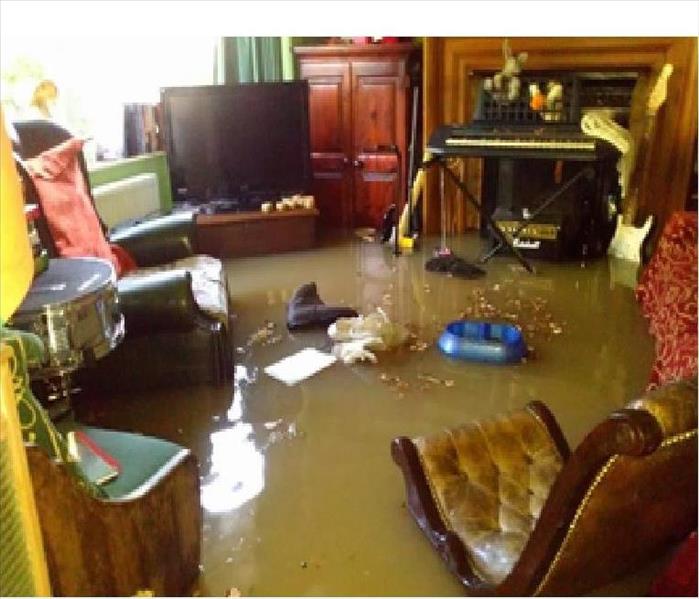Learning More About Your Water Loss
11/11/2017 (Permalink)
When a pipe bursts in your house, a washing machine over floods, or a water heater malfunction happens and you end up with an unwanted amount of water in your home you know that you need to act fast. Most homeowners know the drill, they will need to contact their insurance company and then a restoration company, like SERVPRO of Dover/Stillwater, to start the extraction, drying process, and restoration process. While this is important information to know, and we will explain as much as we can about the process, it never hurts to learn a little bit more about the steps that we need to take in order to do a professional job at your property so you are 100% satisfied.
One of the things that we would like to share with you today is how to determine the class of water that we are dealing with and why it is an important part of the process.
Once in your property our highly-trained technicians will determine the category of water that they are working with, but they also need to determine the class of water. This is very important because the class will aid to choose the cleaning and disinfecting protocol to follow for that particular job. Also, with this information a specific drying plan, with the right equipment (dehumidifiers, air movers, etc.) will be in place and the drying process will begin. The four classes of water that our team will identify are:
Class One: This class of water has a slow evaporation rate. The technicians will understand that only part or a room is compromised and the carpet could be little or no wet at all. This is the easiest class to work with in case of a water damage.
Class Two: This class has a faster evaporation rate than class one. Our technicians will know that the whole room was affected, as well as the carpet, the walls are now compromised, and there is moisture in the structural materials of your property.
Class Three: The class with the fastest evaporation rate. This class means that the walls, ceiling, insulations, carpet, and sub floors in your property are affected. In most cases the kind of damage for this class started from overhead or the roof of your home.
Class Four: This is the special class that will need a special drying process. When our technicians determine this class they understand that it has passed enough time for different materials (like hardwood and stone) to be compromised. Special methods of drying will need to be used and more likely this will take longer to dry than the other classes of water.
We hope that this information helps you to learn a little more about our process and how we determine the right drying plan for your specific situation. If you have any questions give us a call we are here to guide you and help you in any emergency situation. We are SERVPRO of Dover/Stillwater 973-810-2825.






 24/7 Emergency Service
24/7 Emergency Service
